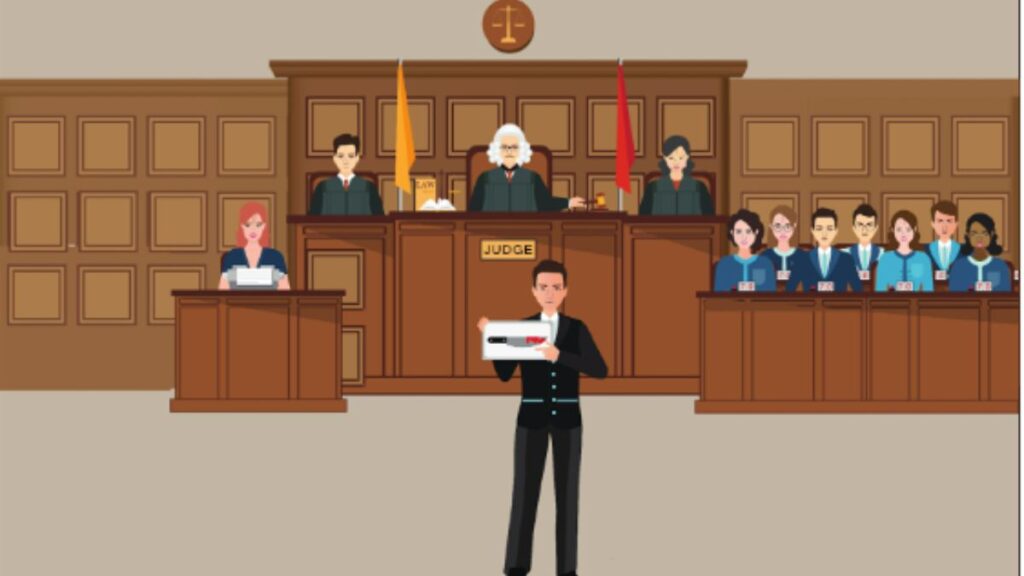Navigating the complexities of court hearings can be a daunting experience. From understanding legal terminology to preparing your arguments, the entire process can be overwhelming, especially for those unfamiliar with the judicial system. However, with the right approach and a comprehensive strategy, you can effectively prepare yourself and increase your chances of success in court.

Understand the Basics of the Court System
Before stepping into the courtroom, it is crucial to understand the structure and function of the court system. Familiarize yourself with the different types of courts, such as civil, criminal, and family courts, each having distinct procedures and rules. Knowing which court your case is in will help you navigate the process smoothly and tailor your approach to meet specific requirements.
Additionally, learn about the roles of the individuals involved in the proceedings, including the judge, lawyers, and clerks. Understanding their roles will help you interact more effectively and understand the courtroom dynamics. This knowledge alleviates anxiety and empowers you to participate more actively in your case.
Consult Legal Experts for Guidance
Consulting with a qualified attorney is highly valuable when preparing for court. Legal experts offer personalized advice, guiding you through the intricacies of the legal system. They can help you build a strong case, ensuring all necessary steps are taken. With their support, you can avoid missing key details and improve your chances of a favorable outcome.
For additional guidance, consult legal experts on key areas such as drafting essential documents. If you need to write an apology letter related to your case, it is crucial to ensure its language and tone are appropriate for your situation. Seeking apology letter advice from legal experts can help you craft a well-structured letter that demonstrates accountability without unintentionally admitting liability. With their insights, you can present yourself in the most favorable light, potentially influencing the outcome of your case positively.
Gather and Organize Necessary Documentation
A critical step in preparing for court is gathering and organizing all relevant documentation. This includes contracts, emails, records, and other materials supporting your claim or defense. Collecting these documents in an orderly fashion ensures that you have easy access to the necessary evidence when presenting your case. Properly organizing your materials will also save time and prevent unnecessary stress during the legal proceedings.
Creating a chronological timeline of events related to your case can be highly beneficial. This timeline will provide you and your attorney with a clear, structured overview of the facts, making it easier to spot important details. It also serves as a helpful reference for staying on track during the hearing. Well-organized documentation and a clear timeline reduce the risk of missing key elements that could significantly impact the outcome of your case.
Practice Your Presentation
Once you have your materials in place, practicing how you will present your case is essential. Consider rehearsing your arguments, potential questions you may face, and your responses. Practicing in front of friends or family can provide valuable feedback and help you refine your presentation style.
In particular, focus on clarity and conciseness in your communication. Legal jargon can create misunderstandings, so express your thoughts in layman’s terms. The more comfortable you are with your presentation, the better you will convey your points clearly and effectively to the judge and other parties involved.
Know Courtroom Etiquette
Courtroom etiquette is pivotal in how you are perceived during the hearing. Dressing appropriately is a sign of respect toward the court and can positively influence the judge’s opinion of you. Opt for professional attire that reflects the seriousness of the situation, as it sets an appropriate tone for your appearance.

Moreover, understanding courtroom behavior is equally important. Maintain a respectful demeanor throughout the proceedings, addressing the judge and other participants appropriately. Staying calm and composed will help you avoid unnecessary complications and allow you to focus on your case.
Prepare for Emotional Challenges
Court hearings can evoke a range of emotions, from anxiety to frustration. Understanding that these feelings are normal can help you cope more effectively. Taking proactive measures like practicing mindfulness or deep-breathing exercises can significantly reduce stress before and during your court appearance.
Furthermore, consider seeking support from friends or family. Discussing your feelings with trusted individuals can provide comfort and perspective. Do not underestimate the mental strength required to face such challenges. Preparing your case and your emotions can lead to a more empowering courtroom experience.
Being adequately prepared for court can make a significant difference in the outcome of your case. From understanding the court system to consulting with legal professionals, each step contributes to a confident appearance. While the process is inherently stressful, thorough preparation can ease the burden and position you for success.







